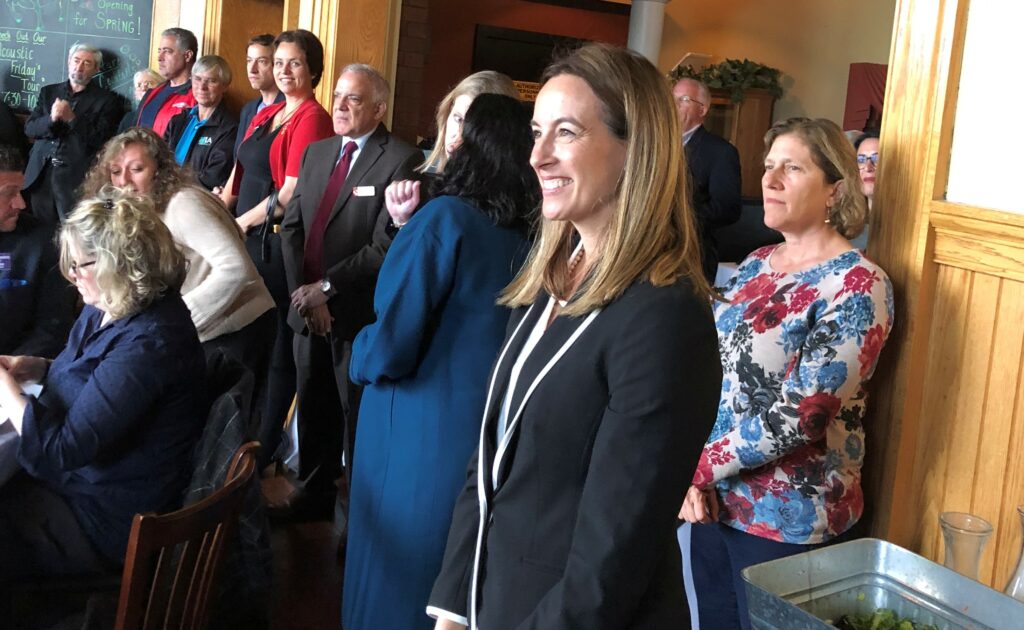Rep. Sherrill Leads Bipartisan Brownfields Tax Incentive Bill

Rep. Sherrill Leads Bipartisan Brownfields Tax Incentive Bill
H.R. 5215, the Brownfields Redevelopment Tax Incentive Reauthorization Act of 2019, Restores Federal Tax Deduction to Spur Economic Development and Strengthen Local Communities
Washington, DC — Representative Mikie Sherrill (D-NJ) introduced the Brownfields Tax Redevelopment Tax Incentive Reauthorization Act of 2019 (H.R. 5215), joined by Representatives Jahana Hayes (D-CT), Jim Himes (D-CT), Peter King (R-NY), and Mike Turner (R-OH). This bipartisan bill restores an expired tax incentive allowing developers to fully deduct the costs of environmental remediation of brownfields in the year the costs were incurred.
“This tax incentive will spur tremendous investment in communities in North Jersey and around the country,” said Representative Sherrill. “Remediating unproductive brownfields transforms neighborhoods, increases local tax bases, creates jobs, spurs growth, utilizes existing infrastructure, and protects the environment by redeveloping vacant industrial and commercial land and preserving open spaces. I’m introducing this bipartisan bill with my colleagues to encourage the kind of site clean-up and revitalization projects that bring new growth to communities.”
“My district is littered with Brownfields, left behind by our long history in manufacturing,” said Representative Hayes. “These sites have the potential presence of hazardous substances, pollutants, or contaminants which makes them unusable for community redevelopment. Renewing the Brownfields tax incentive will help turn these unused areas into opportunities for new businesses, creating jobs and building our local economy. I am glad to introduce this important bill and thank Representatives Sherrill, Himes, King, and Turner for joining me in a bipartisan effort to implement this commonsense solution.”
“Communities across our country are reinvesting, rebuilding, and rejuvenating more quickly than ever to make more livable, vibrant neighborhoods,” said Representative Himes. “Yet, too many opportunities are unavailable because pollution has rendered the land unusable. We see this in Connecticut among cities that served as the arsenal of democracy in the Second World War, but are now unable to utilize some of the most desirable land for redevelopment. This bipartisan bill will help spur growth and I’m proud to join my colleagues in its introduction.”
“This legislation is an essential piece for the redevelopment of many former contaminated sites,” said Representative King. “Rather than spreading deductions over time this legislation will encourage private sector involvement in the cleanup and rehabilitation of brownfields properties.”
“As Mayor of Dayton, I developed brownfields to reinvest in our city and spur economic growth, including the building of the Dayton Dragons stadium,” said Representative Turner. “I know firsthand how important brownfields are for communities looking to rebuild. Our bill extends the brownfields tax credit to help cities like Dayton continue to grow.”
Brownfields are vacant industrial and commercial areas that remain underdeveloped and unproductive because concerns over environmental contamination. They can be former gas stations, dry cleaning facilities, or abandoned factories. There are an estimated 450,000 or more brownfields across the country.
The Brownfields Tax Incentive first passed as part of the Taxpayer Relief Act of 1997. It allowed taxpayers to deduct remediation expenditures for the cleanup of a property if the property was used for a trade, business, or producing income. However, following a two-year extension in 2009, the incentive expired on January 1, 2012, and Congress has since failed to reauthorize this tax incentive.
###







